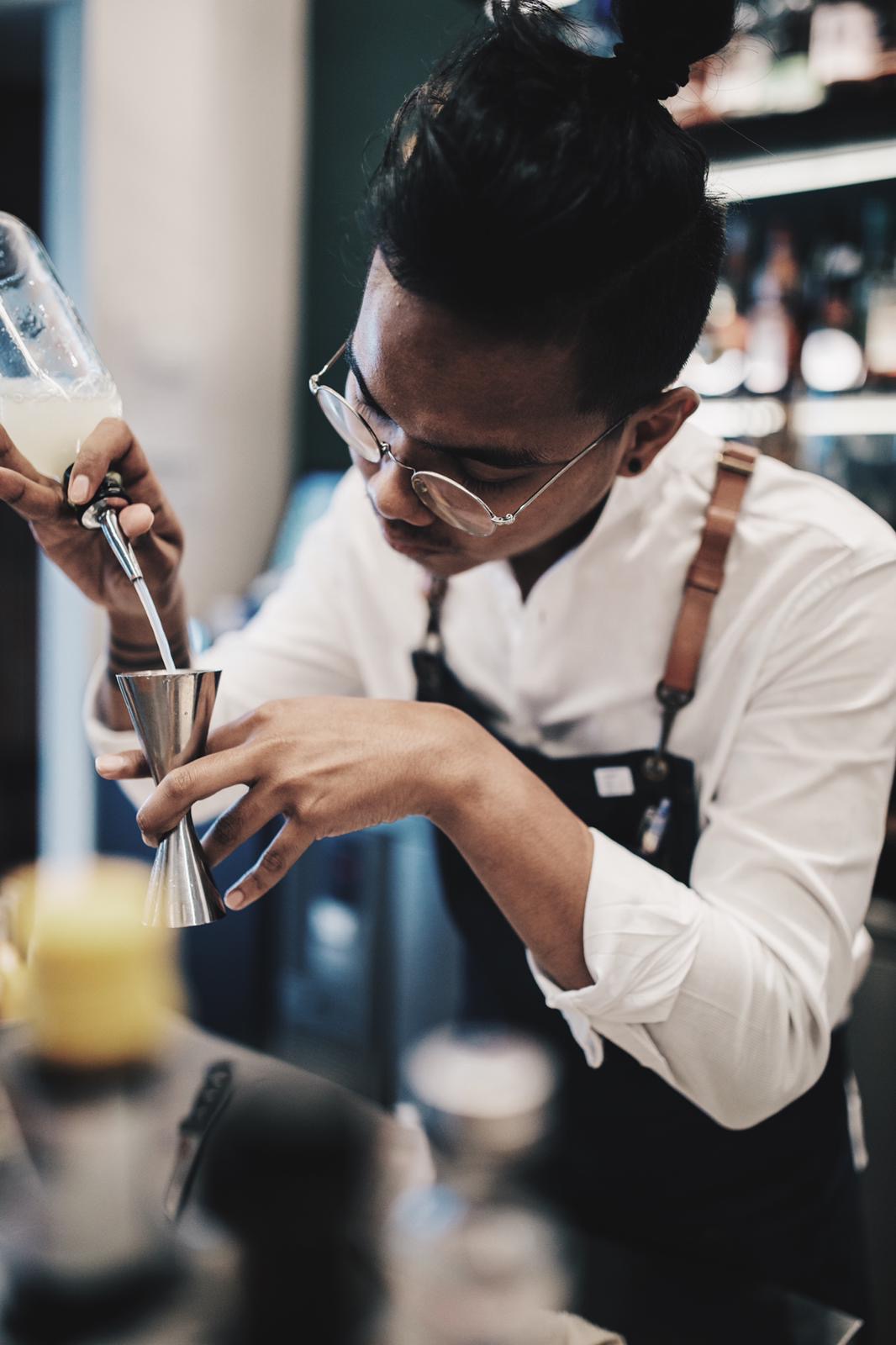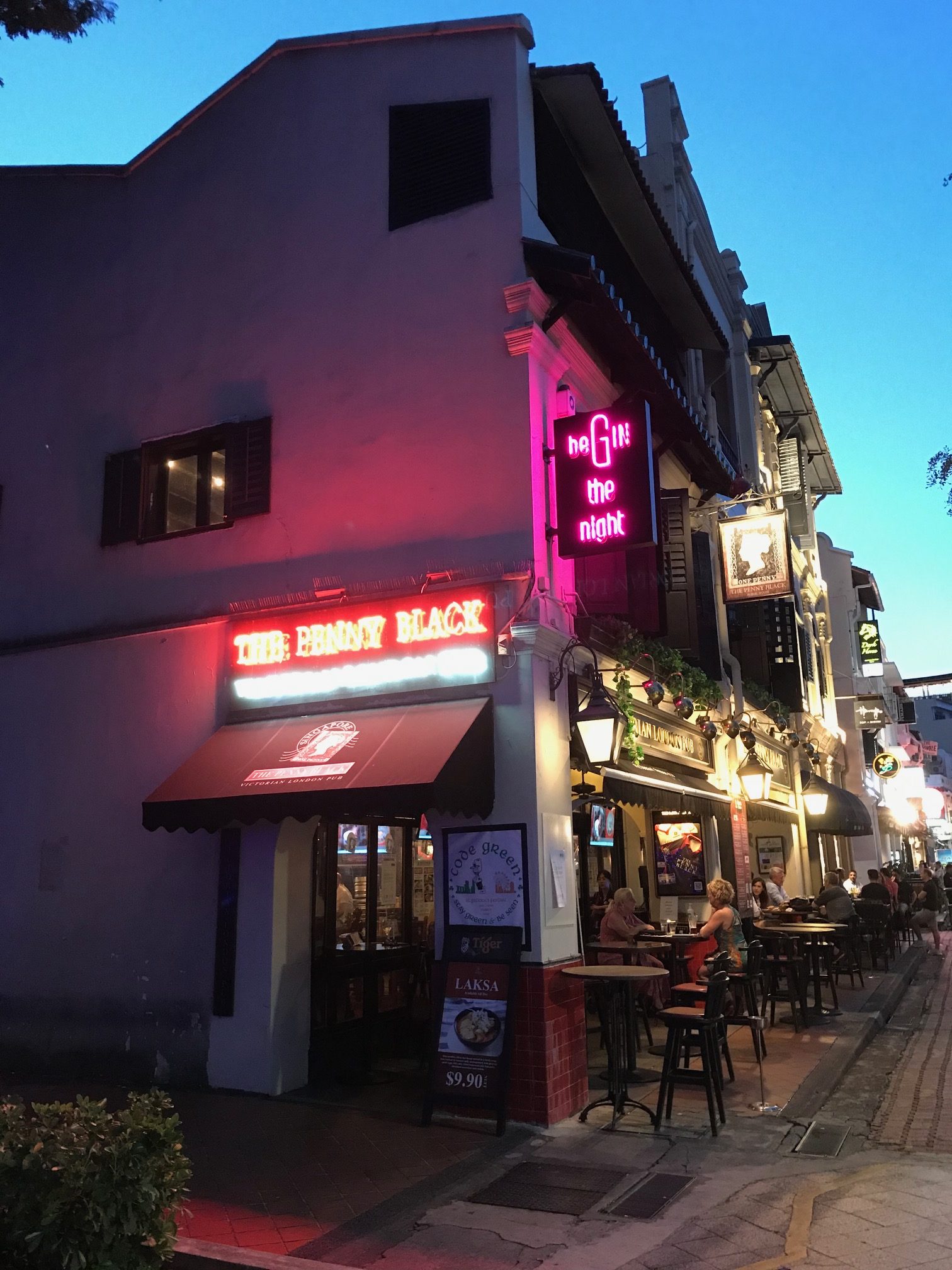Singapore entered full lockdown last week as part of its “circuit breaker” month, calling in the final course in a series of tough serves for the city-state’s food and beverage sector. Hawker stalls, restaurants and cafes, already scarred by the financial hits of social distancing, will be closed to walk-in diners from April 7 to May 5, or shut entirely.
Last Tuesday, proprietors of entertainment venues were informed less than 48 hours before the general public that they would face closure by the end of the week. Lack of clarity over which bar and restaurant licences were eligible to remain open caused chaos, with some outlets being told as late as 5pm that afternoon they didn’t qualify.
“Everyone was panicking!”, said Naz Zurimi, the bartender at the trendy Telok Ayer Arts Club. “I had every one of my customers asking, ‘What’s going to happen? Will you remain open?’ And I couldn’t answer because I didn’t have anything concrete”.

Shelving a full bottle of Black Tears rum and a new cocktail based on the iconic Singaporean breakfast coffee brew Kopi-C, his team held an emergency meeting to plan for an uncertain future.
Naz said the government’s 50% wage offset for local food and beverage employees would help, but worried it might not be enough to float the sector, which makes up 5% of the Singaporean workforce.
“People still need to pay rent despite low sales. I have friends around who are making as little as $10 a day at the moment, and these are high profile bars”, he said.
For Marvin Rana, assistant manager of The Penny Black, Singapore’s “most famous Victorian London pub”, business has been drying up since borders first closed to certain countries last month. Based amongst the colourful awnings of holiday-makers’ Boat Quay, Marvin said “our customers are expats from all over the world, a lot of tourists. Now it’s like tourism is gone – business is gone”.
He estimates the Covid-19 outbreak has cut his footfall by at least 70% over the past few weeks, with it “getting worse and worse”.
To keep liquidity flowing, a number of well-known Singaporean bars – The Old Man, Employees Only, The Secret Mermaid – are vacuum-packing some of their classics and delivering them straight to drinkers’ doors for imbibers to pour or slurp like an alcoholic juice box.
Establishments like the Arts Club, which don’t own a licence to deliver alcohol, are sending out samples of bar snacks. Even clubbing has gone remote, with the city’s popular nightclub Zouk launching the “first cloud clubbing experience in Southeast Asia” in collaboration with the app Bigo Live. The duo offers a chance for homestuck partiers to – literally – dance like no-one’s watching.

Where they can afford the 30-40% commission rate, food outlets are rushing to sign up on digital platforms such as GrabFood, Deliveroo and FoodPanda, which have seen a 20% spike in orders over the last two months.
It’s a savvy short-term fix that may have sticking potential for the industry post-pandemic. In a pre-Covid-19 world of Tinder dates, Zoom video calls and WhatsApp groups, a digital push for drinking and dining might be a natural evolution in an industry where the biggest financial drain is rent – a wasted cost in the current crisis.
Twitter hashtags like #Facewine are trending globally, as more groups around the world raise glasses around Zoom meetings and laptop screens.
Social distancing could be lifting the stigma of drinking alone, but this trend for solo dining may have been sweeping Japan before self-isolation even began. Where once it was embarrassing to be seen at a canteen table alone, now the virus has caused the “ohitorisama”, loosely translated as “party of one”, movement to grow in the realms of solo dining, travelling and entertainment.
Once everything is over, it’s going to be open season
Naz, assistant manager at the Telok Ayer Arts Club
Demand for solo artist karaoke, for instance, has increased to account for 30-40% of all customers in Japan. In a world more connected – and more individualistic than ever – many are finding comfort in their own company.
But for all the digital workarounds now making life easier, bar managers like Naz are looking onward to non-virtual innovations that’ll quickly get the party started again when Singaporeans are ready to venture out again and Covid-19 is just an anxious hangover of bad memories.
“Drinking a cocktail at home and drinking a cocktail in a bar, it’s two completely different experiences”, he explained. “There’s ambience. There’s service. [This is] a stepping stone for all of us to up our game.”
At his place, that means coming up with new functions, new events and even better cocktails than before to lure the customers back.
“Once everything is over, it’s going to be open season”, Naz said.


